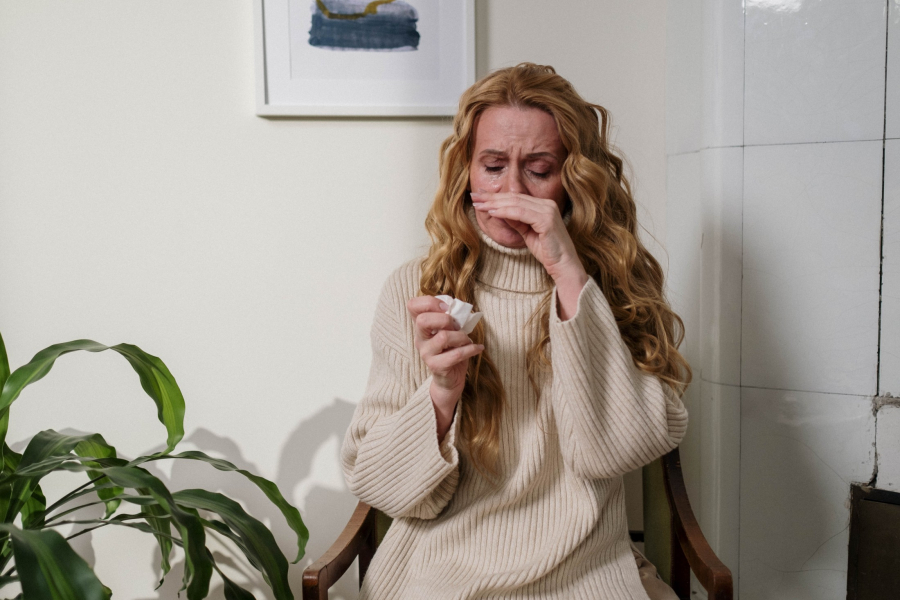
Did you know that an HVAC system can help lessen the effects of allergies? It’s true. Installing a new HVAC system is one of the best ways to reduce the impact of seasonal allergies.
A clean, well-maintained HVAC system can drastically improve your home’s air quality and reduce airborne contaminants. Changing an old HVAC system with a new upgraded one has many benefits. An improved AC unit will remove odors from your home more efficiently and make the air feel cleaner.
The following tips will help you see how an HVAC system can lessen the effects of allergy symptoms in any space.
Change your Air Filter Regularly
Another excellent way to keep your home’s air clean is by regularly changing your HVAC system’s air filter. A quality air filter will help to keep allergens like pollen, pet dander, and dust out of the air. It will also prevent debris like leaves and insects from being drawn into your system. A clean air filter will improve the air quality inside your home. It will also extend the life of your AC unit by preventing large debris from clogging the system.
If you realize that your air filter is dirty, change it as soon as possible to avoid drawing contaminants into your home. Changing your air filter within 1-3 months is advisable, depending on the season and how busy your home is.
Run your AC System 24/7
Many people believe that keeping their AC unit off during warmer months will save them money on energy bills. While this is true, it’s also one of the worst things you can do for allergies. Your AC unit should always be running to keep allergens out of your home.
When you’re not running your AC, allergens like pollen and pet dander will collect on your floors, furniture, and walls. If you turn off your AC, these allergens will end up in your home’s air. When you keep your AC running 24/7, allergens will not be able to collect and build up in your home. You’ll also control the humidity in your home, which will help keep allergens out.
Don’t add Scented Oils to the System.
If you’re cleaning your HVAC system and you notice that it smells terrible, you might consider adding scented oils to it. While this might be tempting, it’s one of the worst things you could do for allergies. When you add scented oils to your HVAC system, they’ll mix with the air that your system is blowing throughout your home. This will make your air quality even worse, and it’ll make you and your family even more susceptible to allergies.
If your HVAC system is dirty, consider cleaning it before you add scented oils. This will help ensure that the oils don’t mix with the air blown throughout your home.
Add an Ultraviolet Light Disinfection System.
Another great way to clean your HVAC system is by adding an ultraviolet light disinfection system. UV light disinfection systems help to kill bacteria and viruses that might be lingering in your system. If you are a culprit of seasonal allergies, you’re probably very careful about cleaning your HVAC system. But you might not be sure that bacteria and viruses can grow in your system if you don’t clean it regularly.
An ultraviolet light disinfection system will help kill the bacteria and viruses growing in your system. This will ensure that you keep your system clean and help prevent bacteria and viruses from entering your HVAC system. This will make your air quality much better, and it will also help to lessen the effects of seasonal allergies.
Keep your HVAC System Well-Maintained.
Keeping your HVAC system well-maintained is the best way to ensure the air stays clean. HVAC units collect dust and debris, so it’s essential to clean them often.
Clean your HVAC system for a minimum of a month during the spring and summer. It would be best if you also cleaned it once every three months during the fall and winter. When you tend your system, it will work more efficiently, and it will be less likely to make the air inside your home dirty. You’ll also prevent allergens from building up inside your system.
Install a Particulate Filter.
A particulate filter is a type of filter that catches large debris and contaminants in the air. A particulate filter is a significant investment if you have furry pets or live in a very dusty area. It can collect the large debris in your system and stop it from entering your home.
Particulate filters can also help to clean your air. They can contain smaller contaminants in the air, like pollen and dust, and prevent them from entering your home. A particulate filter is an excellent investment for people who suffer from seasonal allergies.
Use Indoor Plants to Remove Allergens.
If you want to eliminate allergens from your home, consider adding indoor plants. Many plants, including basil and fennel, emit a substance called terpenes that can help to kill germs and keep your home clean. You can place plants throughout your home to help keep your HVAC system clean and to lessen the effects of allergies.
You can put plants near your AC unit, in the corners of your home, and anywhere else you’d like. When you add plants to your home, they’ll trap the allergens in their leaves and roots. This will help keep your home clean and reduce the allergens in your home.
Get an Ionizer for Even Better Results.
An ionizer is an air purification system that can be installed in your HVAC system. An ionizer can clean the air in your home and reduce the number of allergens in the air. An ionizer works by removing contaminants from the air, such as pollen and dust, and trapping them in a filter. It also adds negatively charged ions to the atmosphere to make the air feel cleaner and smell fresher.
An ionizer is an excellent investment for people who suffer from seasonal allergies. It is easy to install in most HVAC systems, and it can make a big difference in the air quality of your home.
To conclude, seasonal allergies can be incredibly uncomfortable and disruptive to your daily life. If you suffer from allergies, you know how important it is to keep your home clean. An HVAC system is one of the best ways to keep your home clean and lessen the effects of allergies.
Replacing your old system with a new one is one of the best ways to keep your home clean and improve air quality.
